Kameda Anesthesiology International Fellowship Program (KAIFP)
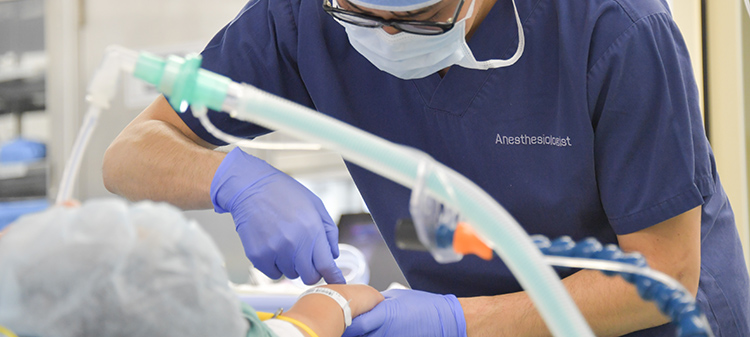
- 1. Introduction
- 2. Why Choose Kameda Anesthesiology?
- 3. Program Structure
- 4. Clinical Training Componentse
- 5. Research & Academic Opportunities
- 6. Teaching & Mentorship Opportunities
- 7. Application Process
- 8. Living Information
- 9. Current International Fellow Testimonial
1. Introduction
The Kameda Anesthesiology International Fellowship Program offers advanced clinical training at Kameda Medical Center, one of Japan’s leading tertiary care hospitals . Kameda Medical Center was the first medical institution in Japan to obtain JCI accreditation. It is also recognized as the top 3 hospital in Japan and ranked among the top 50 hospitals worldwide by Newsweek. Kameda is also an ACGME-I accredited institution, ensuring internationally recognized training standards.
The Department of Anesthesiology is composed of specialists trained in Japan, the U.S., the UK, and Canada and is actively involved in high-impact research and international conferences. The fellowship provides a diverse, English-speaking academic environment, offering international trainees a unique opportunity to develop expertise in cardiothoracic anesthesia, regional anesthesia, and neuroanesthesia, along with exposure to cutting-edge research and multidisciplinary collaboration.
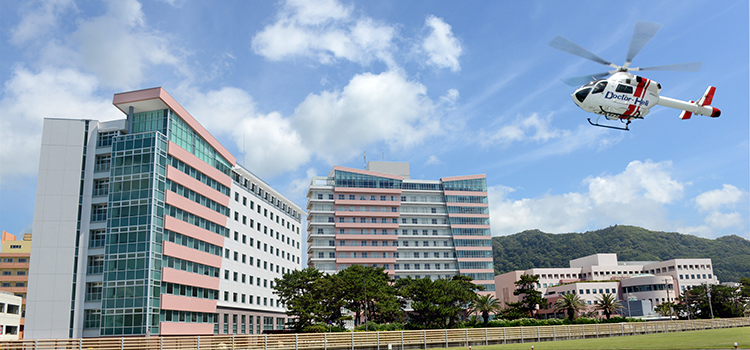
2. Why Choose Kameda Anesthesiology?
- World-Class Training – Expert faculty, strong mentorship, and a high-acuity case mix.
- Advanced Clinical Exposure – Specialized experience in cardiothoracic, regional, and neuroanesthesia.
- Multidisciplinary Collaboration – Work closely with surgery, ICU, pain medicine, and perioperative teams.
- Research & Academic Growth – Opportunities in clinical trials, quality improvement projects, and academic writing.
- State-of-the-Art Facilities – Hybrid ORs, advanced non-operative room anesthesia settings, and the latest anesthesia technologies.
- CSS Center - The facility includes a Clinical Skills and Simulation Center with modern training equipment and simulator, available 24/7.
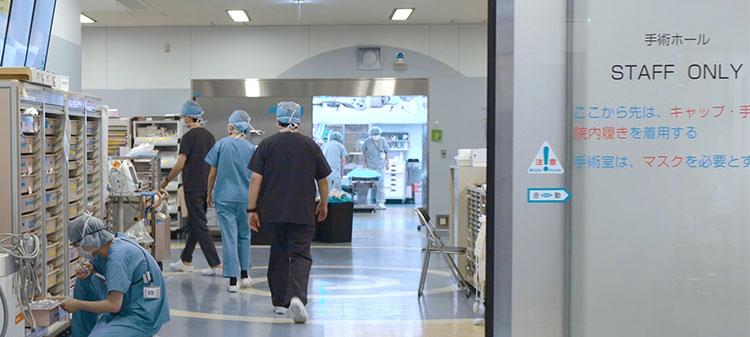
3. Program Structure
Fellowships Offered
- Cardiothoracic Anesthesia Fellowship (Webpage under construction)
- Neuroanesthesia Fellowship (Webpage under construction)
- Regional Anesthesia Fellowship (Webpage under construction)
Key Details
- Duration: 1–2 years (determined individually).
- Start Date: Flexible, upon request.
- Positions Available: 1 fellow per fellowship.
Clinical Exposure
- High-volume, high-acuity case mix with extensive hands-on experience.
- Teaching opportunities for medical students, interns, and residents.
- Research opportunities available for interested fellows.
Training Schedule
- Monday–Friday: 8:00 AM – 5:00 PM (including breaks).
- On-call duty: Maximum 4 times per month.
- Non-clinical activities (NCA): Once per week (dedicated to academic work, research, or self-study).
- Time Off: 2 weeks per year.

4. Clinical Training Components
- Hands-on experience in our high-volume surgical center.
- Rotations across specialized units: Cardiothoracic anesthesia, Regional anesthesia, and Neuroanesthesia.
- Emphasis on multimodal perioperative management and evidence-based anesthesia practice.
- Simulation Training – High-fidelity simulation in crisis management, airway emergencies, and regional anesthesia.
- Grand Rounds – Faculty-led case discussions, research presentations, and guideline reviews.
- Journal Club – Critical appraisal of recent high-impact publications in anesthesiology.
- Board Review Sessions – Structured preparation for international anesthesia board exams (J-RACE, JBPOT, Advanced PTEeXAM, CCEeXAM, EDRA, etc.).
5. Research & Academic Opportunities
- Guidance in manuscript preparation and conference presentations.
- Encouraged participation in national and international conferences (e.g., ASA, ESRA, JSA).
- Participation in ongoing research projects and clinical trials.
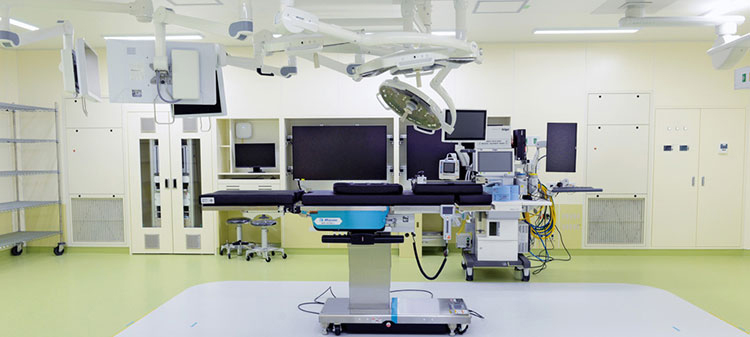
6. Teaching & Mentorship Opportunities
- Supervise interns and junior residents during perioperative management.
- Deliver lectures and case presentations in departmental education sessions.
- Conduct team-based simulation exercises in the hospital’s simulation center.
- Experienced fellows may have the opportunity to take on a consultant role, managing complex perioperative cases with increasing autonomy under faculty supervision.
- Participation in multidisciplinary case discussions with surgical, ICU, and pain teams.
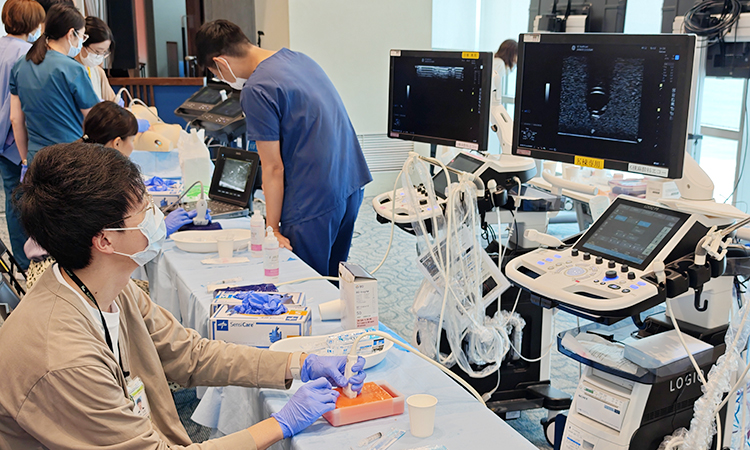
7. Application Process
*Fellowship positions for 2026 and 2027 have been filled. We are now accepting applications for 2028 and beyond.
Application Requirements
- Applicants must have graduated from an anesthesiology residency program at their home institution. Board certification in anesthesiology is preferred.
- English Proficiency:
Required if the applicant did not graduate or train in an English-speaking setting. - Minimal score:
- TOEFL: 89 ; IELTS: 6.0
- Other equivalent exams may be considered.
Application Materials
- Curriculum Vitae (CV).
- Personal Statement (motivation, goals, and relevant experience).
- One recommendation letter (from a supervisor or mentor).
Application Steps
-
1.Submit application materials via the designated contact email.
-
2.Review process by the selection committee.
-
3.Remote interview with the program director (if shortlisted).
-
4.Final approval by the selection committee.
-
5.Visa & licensing process for international applicants.
• Visa Sponsorship: Available for eligible candidates.
Application Timeline
- Rolling admissions throughout the year.
- Processing Time: 6–12 months (including application review, interview, and visa processing).
- Early application is encouraged to avoid delays.
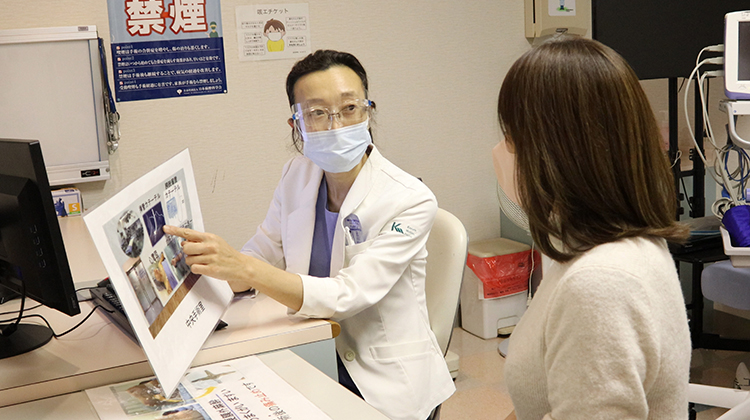
8. Living Information
- Stipend: ¥100,000 per month.
- Housing: Hospital-provided apartments (housing costs covered; gas, electricity, and water deducted from stipend).
- Japanese Language Lessons: Available upon request.
9. Current International Fellow Testimonial
Dr. Betina Lazaro, M.D., MBA
It was rather fortuitous to be the first Neuroanesthesia fellow at Kameda Medical Center. Moving to a foreign country was quite daunting, but Kameda Medical Center has proven otherwise, especially the Anesthesiology Department, which continuously provides me with a very supportive environment that helps me hone my skills as a neuroanesthesiologist. The hands-on clinical training is truly refining my clinical judgment and technical skills.
The Neuroanesthesia fellowship has been an exceptional opportunity to further develop my skills in this specialized field. The faculty, and even the residents, are not only highly knowledgeable but also incredibly approachable and dedicated to teaching. They provide an avenue where I feel both challenged and supported at every step. The mentorship is exceptional, with every case discussed thoroughly during our daily conferences, and research discussions are held frequently. Though discussions are held in both English and Japanese, this has not been a deterrent to my learning but a chance for me to assimilate myself and communicate better with my patients.
Given their strong ties with other large medical institutions around Japan, it is an edge to be able to learn from different faculties who are experts in their specializations.
I am very fortunate that the hospital fosters an environment where personal well-being is respected. The flexible schedules, supportive team culture, and strong focus on maintaining a healthy work-life balance allow me to fully engage in my professional development while also having time to recharge outside of work. This has truly made my experience here even more worthwhile.
Overall, I couldn’t be more grateful for the opportunities Kameda Medical Center continues to offer me. My learning experience has been truly enjoyable and rewarding.
Contact Information
Program Director: Dr. Kenichi Ueda, M.D., Ph.D.
Email: kameda.masui@kameda.jp
Fax: (+81)4-70-92-2211
Tel: (+81)4-70-92-1191


